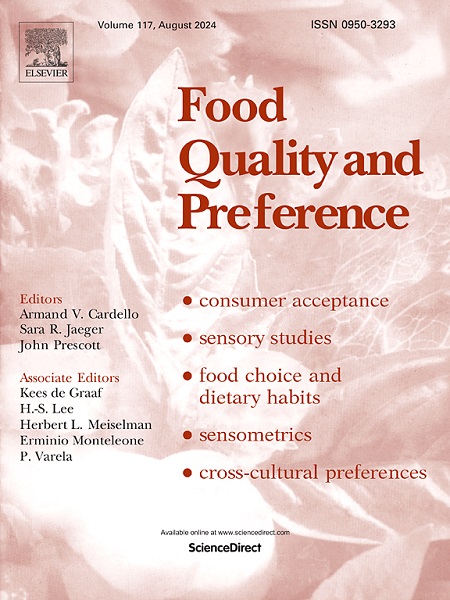What makes whisky more sustainable? The importance of raw materials, production process and packaging
IF 4.9
1区 农林科学
Q1 FOOD SCIENCE & TECHNOLOGY
引用次数: 0
Abstract
This study investigates how different sustainability attributes impact consumer perceptions and behaviors in the whisky industry, focusing on three key life cycle stages: Sustainable Raw Materials, Production Efficiency, and Sustainable Packaging. Using Life Cycle Assessment (LCA) as a conceptual framework, the study examines how these attributes influence variables related to the consumption process (Purchase Intention, Willingness to Pay), the product (Perceived Environmental Friendliness, Perceived Product Quality), and the producer (Perceived Intentions of the Producer, Perceived Environmental Responsibility). The findings reveal that Production Efficiency had the most positive influence across all variables, particularly among consumers with high environmental orientation (EA) and consumer involvement (CI). Practical implications for marketers include the need for targeted communication strategies that reassure consumers about quality while emphasizing the environmental benefits of sustainability attributes. The study concludes with recommendations for future research, including a more detailed exploration of sustainability attributes based on LCA, brand-specific studies, and the potential impact of sustainability on sensory perceptions of whisky.
是什么让威士忌更具可持续性?原料、生产工艺和包装的重要性
本研究调查了不同的可持续性属性如何影响威士忌行业的消费者认知和行为,重点关注三个关键的生命周期阶段:可持续原材料、生产效率和可持续包装。本研究以生命周期评估(LCA)为概念框架,探讨这些属性如何影响与消费过程(购买意愿、支付意愿)、产品(感知环境友好、感知产品质量)和生产者(感知生产者意图、感知环境责任)相关的变量。研究结果显示,生产效率在所有变量中都具有最积极的影响,特别是在环境导向(EA)和消费者参与(CI)较高的消费者中。对营销人员的实际影响包括需要有针对性的沟通策略,使消费者对质量放心,同时强调可持续性属性的环境效益。该研究总结了对未来研究的建议,包括更详细地探索基于LCA的可持续性属性,品牌特定研究,以及可持续性对威士忌感官感知的潜在影响。
本文章由计算机程序翻译,如有差异,请以英文原文为准。
求助全文
约1分钟内获得全文
求助全文
来源期刊

Food Quality and Preference
工程技术-食品科技
CiteScore
10.40
自引率
15.10%
发文量
263
审稿时长
38 days
期刊介绍:
Food Quality and Preference is a journal devoted to sensory, consumer and behavioural research in food and non-food products. It publishes original research, critical reviews, and short communications in sensory and consumer science, and sensometrics. In addition, the journal publishes special invited issues on important timely topics and from relevant conferences. These are aimed at bridging the gap between research and application, bringing together authors and readers in consumer and market research, sensory science, sensometrics and sensory evaluation, nutrition and food choice, as well as food research, product development and sensory quality assurance. Submissions to Food Quality and Preference are limited to papers that include some form of human measurement; papers that are limited to physical/chemical measures or the routine application of sensory, consumer or econometric analysis will not be considered unless they specifically make a novel scientific contribution in line with the journal''s coverage as outlined below.
 求助内容:
求助内容: 应助结果提醒方式:
应助结果提醒方式:


